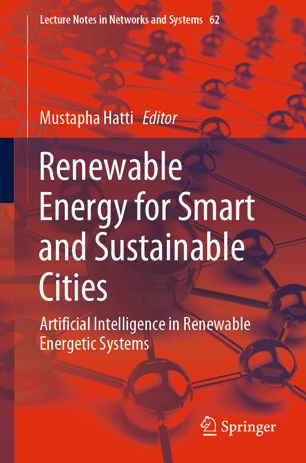

Most ebook files are in PDF format, so you can easily read them using various software such as Foxit Reader or directly on the Google Chrome browser.
Some ebook files are released by publishers in other formats such as .awz, .mobi, .epub, .fb2, etc. You may need to install specific software to read these formats on mobile/PC, such as Calibre.
Please read the tutorial at this link: https://ebookbell.com/faq
We offer FREE conversion to the popular formats you request; however, this may take some time. Therefore, right after payment, please email us, and we will try to provide the service as quickly as possible.
For some exceptional file formats or broken links (if any), please refrain from opening any disputes. Instead, email us first, and we will try to assist within a maximum of 6 hours.
EbookBell Team

4.4
12 reviewsThis book features cutting-edge research presented at the second international conference on Artificial Intelligence in Renewable Energetic Systems, IC-AIRES2018, held on 24–26 November 2018, at the High School of Commerce, ESC-Koléa in Tipaza, Algeria.
Today, the fundamental challenge of integrating renewable energies into the design of smart cities is more relevant than ever. While based on the advent of big data and the use of information and communication technologies, smart cities must now respond to cross-cutting issues involving urban development, energy and environmental constraints; further, these cities must also explore how they can integrate more sustainable energies.
Sustainable energies are a major determinant of smart cities’ longevity. From an environmental and technological standpoint, these energies offer an optimal power supply to the electric network while creating significantly less pollution. This requires flexibility, i.e., the availability of supply and demand. The end goal of any smart city is to improve the quality of life for all citizens (both in the city and in the countryside) in a way that is sustainable and respectful of the environment.
This book encourages the reader to engage in the preservation of our environment, every moment, every day, so as to help build a clean and healthy future, and to think of the future generations who will one day inherit our planet. Further, it equips those whose work involves energy systems and those engaged in modelling artificial intelligence to combine their expertise for the benefit of the scientific community and humanity as a whole.